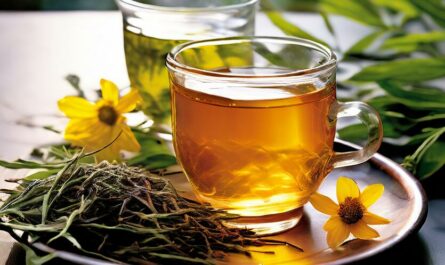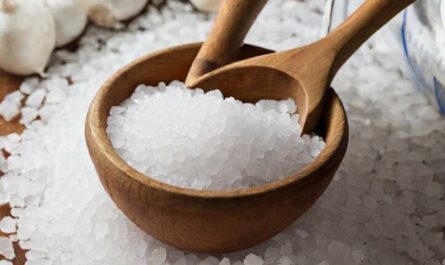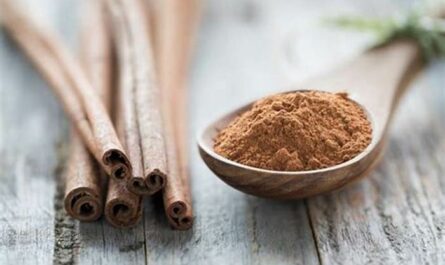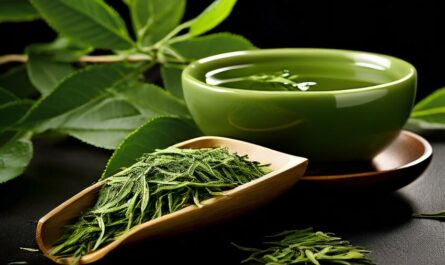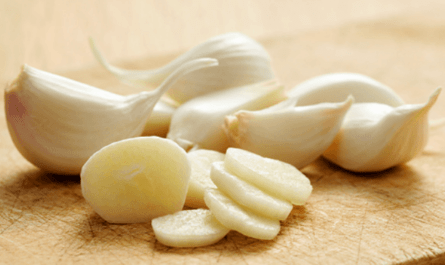Tea is one of the most popular beverages worldwide, enjoyed for its rich flavors and potential health benefits. However, for those looking to reduce their caffeine intake, decaffeinated teas have become an increasingly attractive option. Among the decaf varieties, green tea and black tea are two of the most widely consumed. In this article, we’ll discuss what is better green or black tea decaf. We will compare their caffeine content, health benefits, taste profiles, and more to help you make an informed decision.
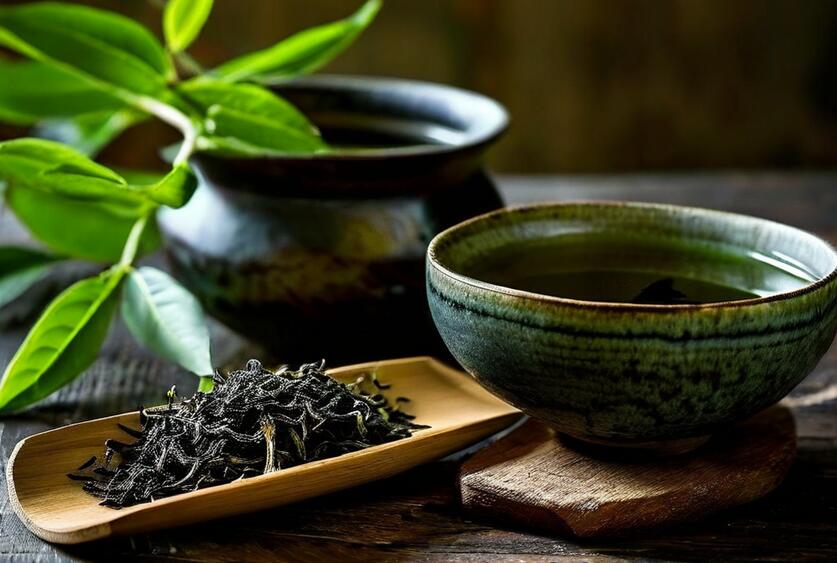
What is Decaf Tea?
Decaffeinated tea, or decaf tea, is a type of tea that has undergone a process to remove most of its naturally occurring caffeine. There are several methods used for decaffeination, including:
- Carbon Dioxide (CO2) Process: This method uses pressurized carbon dioxide to extract caffeine from the tea leaves. The CO2 acts as a solvent, selectively removing the caffeine molecules while leaving behind the other compounds responsible for the tea’s flavor and aroma.
- Ethyl Acetate Process: In this method, ethyl acetate, a naturally occurring compound found in fruits like bananas, is used as a solvent to remove caffeine. The tea leaves are soaked in a bath of ethyl acetate. This selectively binds to and removes the caffeine molecules.
- Water Process: This involves using water as the solvent to remove caffeine from the tea leaves. The tea leaves are first soaked in hot water to dissolve the caffeine, and then the caffeine-infused water is removed. This process is repeated several times until the desired caffeine reduction is achieved.
It’s important to note that while these processes remove a significant portion of the caffeine, decaf teas still contain trace amounts of caffeine. This is typically less than 2.5% of the original caffeine content.
1. Caffeine: Decaf Green Tea vs Decaf Black Tea
Decaf Green Tea Caffeine
A typical 8-ounce cup of decaf green tea contains approximately 2-10 milligrams of caffeine. In comparison, a regular cup of green tea can have anywhere from 25-50 milligrams of caffeine. The caffeine content in decaf green tea can vary depending on factors such as:
- The specific decaffeination process used
- The type of green tea leaves (e.g., Sencha, Matcha, Gunpowder)
- The brewing time and temperature
- The age and quality of the tea leaves
Decaf Black Tea Caffeine
An 8-ounce cup of decaf black tea typically contains 2-12 milligrams of caffeine. Regular black tea, on the other hand, can have 40-70 milligrams of caffeine per cup. Similar to decaf green tea, the caffeine levels in decaf black tea can be influenced by:
- The decaffeination method employed
- The variety of black tea leaves (e.g., Assam, Darjeeling, Keemun)
- The brewing time and temperature
- The age and quality of the tea leaves
Which Has Less Caffeine?
When directly comparing the caffeine content of decaf green tea and decaf black tea, decaf green tea generally has slightly less caffeine. However, the difference is relatively small. Both varieties can be considered low in caffeine compared to their regular counterparts.
It’s worth noting that the caffeine content can vary significantly between different brands and types of decaf teas. So it’s always a good idea to check the label or consult with the manufacturer for specific caffeine levels.
2. Health Benefits: Decaf Green Tea vs Decaf Black Tea
Health Benefits of Decaf Green Tea
Green tea is made from the leaves of the Camellia sinensis plant. These are minimally processed to preserve their natural color and flavor. This results in a tea with a delicate, slightly grassy taste and a pale green hue.
Some potential benefits of decaf green tea include:
Improved heart health
Studies suggest that regular green tea consumption may lower the risk of heart disease by reducing LDL (“bad”) cholesterol. It can also increase HDL (“good”) cholesterol, and improve blood flow. The antioxidants in green tea may also help protect against the oxidation of LDL cholesterol.
Enhanced brain function
The polyphenols in green tea, particularly a compound called epigallocatechin gallate (EGCG). It may help protect brain cells from oxidative stress and inflammation. This may reduce the risk of neurodegenerative diseases like Alzheimer’s and Parkinson’s. Besides it can also improve cognitive function, memory, and attention.
Weight management
Some research indicates that green tea may boost metabolism and increase fat burning. This could support weight loss efforts. The catechins in green tea may help inhibit the absorption of fat and increase fat oxidation, leading to a reduction in body fat.
Reduced risk of certain cancers
While more research is needed, some studies suggest that the polyphenols in green tea may help protect against the development of certain types of cancer. This includes breast, prostate, and colorectal cancer. The antioxidants in green tea may help neutralize carcinogens and prevent the growth and spread of cancer cells.
Improved dental health
The catechins in green tea may help inhibit the growth of bacteria that cause dental plaque, cavities, and bad breath. Regular green tea consumption may also help reduce inflammation in the gums and protect against periodontal disease.
Health Benefits of Decaf Black Tea
Black tea is also made from the Camellia sinensis plant, but the leaves are fully oxidized, resulting in a darker color and bolder flavor compared to green tea.
Like green tea, black tea contains polyphenols that offer potential health benefits.
Improved gut health
The polyphenols in black tea may help promote the growth of beneficial gut bacteria. This supports digestive health and reduces the risk of gastrointestinal disorders. The tannins in black tea may also help reduce inflammation in the gut and protect against the development of ulcers.
Reduced risk of diabetes
Some studies suggest that regular black tea consumption may help lower blood sugar levels and improve insulin sensitivity. This potentially reduces the risk of type 2 diabetes.
The polyphenols in black tea may help inhibit the absorption of glucose in the intestines. It can also improve the function of insulin-producing cells in the pancreas.
Enhanced immune function
The antioxidants in black tea may help support the immune system, protecting against oxidative stress. The theaflavins in black tea may also help stimulate the production of immune cells and enhance their ability to fight off pathogens.
Improved bone health
Some research suggests that the polyphenols in black tea may help improve bone mineral density and reduce the risk of osteoporosis. The antioxidants in black tea may help protect bone cells from damage and support the formation of new bone tissue.
Reduced risk of heart disease
Like green tea, black tea may help lower the risk of heart disease by reducing LDL cholesterol. This can also improve blood flow, and protect against the oxidation of LDL cholesterol. The theaflavins in black tea may also help reduce inflammation in the blood vessels and prevent the formation of blood clots.
Which is Healthier?
When it comes to overall health benefits, decaf green tea may have a slight edge over decaf black tea. This is primarily due to the higher concentration of antioxidants, particularly EGCG, found in green tea.
However, both varieties offer valuable nutrients and potential health-promoting properties. This makes them excellent choices for those seeking a decaffeinated beverage.
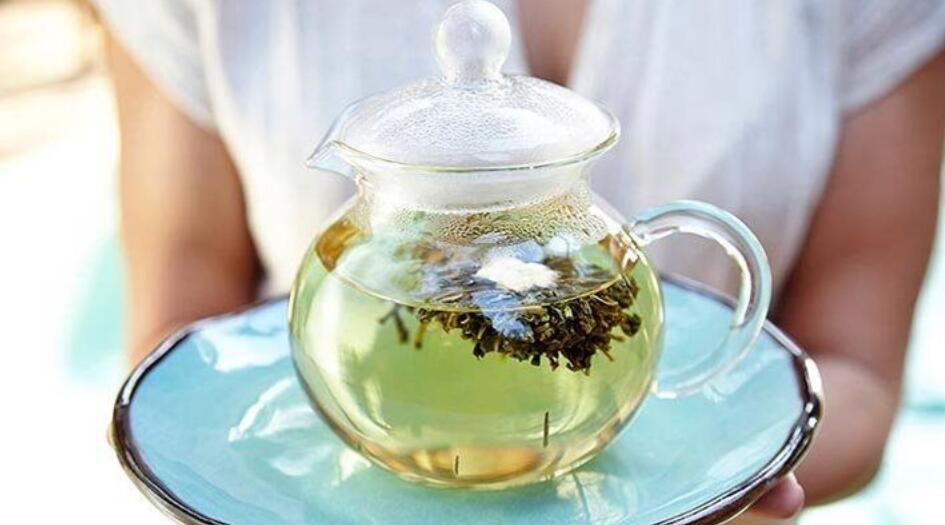
3. Taste: Decaf Green Tea vs Decaf Black Tea
Decaf Green Tea Flavor
Decaf green tea typically has a light, refreshing, and slightly grassy or vegetal flavor. The taste can vary depending on the specific variety of green tea leaves used, with some having more floral or nutty notes. For example:
- Sencha: A popular Japanese green tea with a fresh, grassy flavor and a slightly sweet finish.
- Gunpowder: A Chinese green tea with a robust, smoky flavor and a slightly astringent finish.
- Matcha: A finely ground green tea powder with a rich, umami flavor and a slightly bitter taste.
The decaffeination process can sometimes affect the flavor profile. This potentially makes it slightly milder or more muted compared to regular green tea.
Decaf Black Tea Flavor
Decaf black tea is known for its rich, robust, and slightly astringent flavor. It often has notes of malt, caramel, or even a hint of smokiness. The taste can range from smooth and mellow to bold and full-bodied. This depends on the variety of black tea leaves and the brewing method used. Some popular varieties include:
- Assam: A bold, malty black tea with a rich, full-bodied flavor and a slightly sweet finish.
- Darjeeling: A delicate black tea with a floral aroma and a slightly fruity, muscatel flavor.
- Keemun: A Chinese black tea with a smooth, slightly smoky flavor and a hint of sweetness.
Like decaf green tea, the decaffeination process may slightly alter the flavor compared to regular black tea. But many tea drinkers still find both decaf varieties enjoyable.
Which Has a Better Taste?
When it comes to taste, it ultimately comes down to personal preference. Some may prefer the lighter, more delicate flavor of decaf green tea. Others may gravitate towards the bolder, more robust taste of decaf black tea.
It’s worth noting that the decaffeination process can sometimes result in a slightly muted or altered flavor compared to regular teas. But many tea drinkers still find both decaf varieties enjoyable.
To truly appreciate the nuances of each tea’s flavor, it’s recommended to try different varieties and experiment with brewing methods.
Brewing Tips For Decaf Green and Black Tea
To get the most out of your decaf tea experience, here are some brewing tips:
- Water Temperature: For decaf green tea, use water around 160-180°F (71-82°C). For decaf black tea, use water around 195-205°F (90-96°C). Using the correct water temperature can help extract the optimal flavor and aroma from the tea leaves.
- Steep Time: Steep decaf green tea for 2-3 minutes, and decaf black tea for 3-5 minutes. Over-steeping can lead to bitterness or astringency, while under-steeping may result in a weak, flavorless brew.
- Loose Leaf vs. Tea Bags: Loose leaf teas often provide a more robust flavor and allow for better control over the brewing process. However, tea bags can be more convenient for on-the-go brewing.
- Quantity: Use about 1 teaspoon of loose-leaf tea or 1 tea bag per 8 ounces of water. Adjusting the tea-to-water ratio can help you achieve your desired strength and flavor.
- Experiment: Don’t be afraid to adjust the brewing time, temperature, and tea quantity to suit your taste preferences. Every tea drinker has their unique preferences. So feel free to experiment until you find your perfect cup.
- Reuse Tea Leaves: For a more economical option, you can reuse the same tea leaves for multiple infusions. The flavor will be slightly different with each subsequent infusion, but it can be an enjoyable way to experience the tea’s evolving flavors.

Potential Side Effects
While decaf teas are generally considered safe for most people, there are a few potential side effects to be aware of:
- Tannin Content: Both green and black teas contain tannins, which are naturally occurring compounds that can interfere with the absorption of certain nutrients if consumed in large quantities. Moderation is key, and it’s recommended to consume decaf teas with meals to minimize any potential impact on nutrient absorption.
- Caffeine Sensitivity: Although decaf teas contain significantly less caffeine than regular teas, some individuals may still experience caffeine-related side effects like jitters, headaches, or insomnia if they are particularly sensitive. If you experience any adverse effects, it’s best to limit or avoid decaf teas.
- Interactions with Medications: The compounds in tea, such as polyphenols and caffeine.This may interact with certain medications, potentially affecting their absorption or effectiveness. If you are taking any medications, it’s always best to consult with a healthcare professional.
- Acid Reflux: The tannins and caffeine in decaf teas may exacerbate symptoms of acid reflux or heartburn in some individuals. This is important especially when consumed on an empty stomach.
Conclusion: Which is Better?
After considering the caffeine content, health benefits, taste profiles, and potential side effects, it’s clear that both decaf green tea and decaf black tea offer unique advantages. Here’s a summary of the key points:
- Caffeine Content: Decaf green tea generally has slightly less caffeine than decaf black tea, but the difference is minimal.
- Health Benefits: Decaf green tea may have a slight edge due to its higher antioxidant content, particularly EGCG, but both varieties offer potential health benefits.
- Taste: This comes down to personal preference, with decaf green tea offering a lighter, more delicate flavor, and decaf black tea providing a bolder, more robust taste.
- Brewing Tips: Follow the recommended water temperatures and steep times for each variety to maximize flavor and enjoyment.
- Potential Side Effects: Both decaf teas are generally safe when consumed in moderation, but it’s important to be aware of potential interactions with medications or sensitivities.
Ultimately, the choice between decaf green tea and decaf black tea comes down to your personal preferences and health goals.
If you’re looking for a low-caffeine option with potential antioxidant benefits, decaf green tea may be the better choice. If you prefer a bolder, richer flavor and are interested in the potential heart health benefits, decaf black tea could be the way to go.

